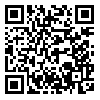BibTeX | RIS | EndNote | Medlars | ProCite | Reference Manager | RefWorks
Send citation to:
URL: http://qhts.modares.ac.ir/article-10-33952-en.html
Translating of the Quran, either fully or partially, has started from its descending time and its evolutionary movement has continued until now. Continuous scientific criticism of the various translations of this sacred work can prepare the ground for advancement of Qur'an translations and also can pave the way to an ideal goal that is a precise translation containing all the delicacies of the original text. So, with the approach of technical and literary pathology of translation, the present study aims to investigate the issue of translators' errors when attempting to translate Asma al-hosna to Persian.
In so doing, data about 43 of these non-selective names were extracted from the Quran.After separating all relevant data and determining their frequency and lexical categories, their equivalents were selected from 35 contemporary Persian translations of the Holy Qur'an. Then they were analyzed in a general and thematic critique method and errors due to translator's oversight were described and classified.
It was found that translators have contravened translation principles in at least 11 cases. Some of these errors include: not observing the consistency in translation; not observing the translation brevity; proposing unfamiliar and incomprehensible equivalents for commonalty; using undue ellipsis; choosing diverse equivalents for the same syntactic structures and using unnecessary structural changes.
Received: 2019/06/17 | Accepted: 2019/09/11 | Published: 2019/09/22
| Rights and permissions | |
 |
This work is licensed under a Creative Commons Attribution-NonCommercial 4.0 International License. |








